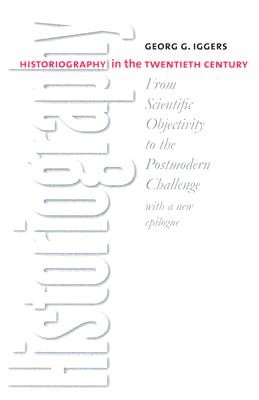
- We will send in 10–14 business days.
- Author: Georg G Iggers
- Publisher: Wesleyan University Press
- ISBN-10: 0819567663
- ISBN-13: 9780819567666
- Format: 14.1 x 21.6 x 1.5 cm, minkšti viršeliai
- Language: English
- SAVE -10% with code: EXTRA
Reviews
Description
A broad perspective on historical thought and writing, with a new epilogue.In this book, now published in 10 languages, a preeminent intellectual historian examines the profound changes in ideas about the nature of history and historiography. Georg G. Iggers traces the basic assumptions upon which historical research and writing have been based, and describes how the newly emerging social sciences transformed historiography following World War II. The discipline's greatest challenge may have come in the last two decades, when postmodern ideas forced a reevaluation of the relationship of historians to their subject and questioned the very possibility of objective history. Iggers sees the contemporary discipline as a hybrid, moving away from a classical, macrohistorical approach toward microhistory, cultural history, and the history of everyday life. The new epilogue, by the author, examines the movement away from postmodernism towards new social science approaches that give greater attention to cultural factors and to the problems of globalization.
EXTRA 10 % discount with code: EXTRA
The promotion ends in 22d.15:42:19
The discount code is valid when purchasing from 10 €. Discounts do not stack.
- Author: Georg G Iggers
- Publisher: Wesleyan University Press
- ISBN-10: 0819567663
- ISBN-13: 9780819567666
- Format: 14.1 x 21.6 x 1.5 cm, minkšti viršeliai
- Language: English English
In this book, now published in 10 languages, a preeminent intellectual historian examines the profound changes in ideas about the nature of history and historiography. Georg G. Iggers traces the basic assumptions upon which historical research and writing have been based, and describes how the newly emerging social sciences transformed historiography following World War II. The discipline's greatest challenge may have come in the last two decades, when postmodern ideas forced a reevaluation of the relationship of historians to their subject and questioned the very possibility of objective history. Iggers sees the contemporary discipline as a hybrid, moving away from a classical, macrohistorical approach toward microhistory, cultural history, and the history of everyday life. The new epilogue, by the author, examines the movement away from postmodernism towards new social science approaches that give greater attention to cultural factors and to the problems of globalization.


Reviews